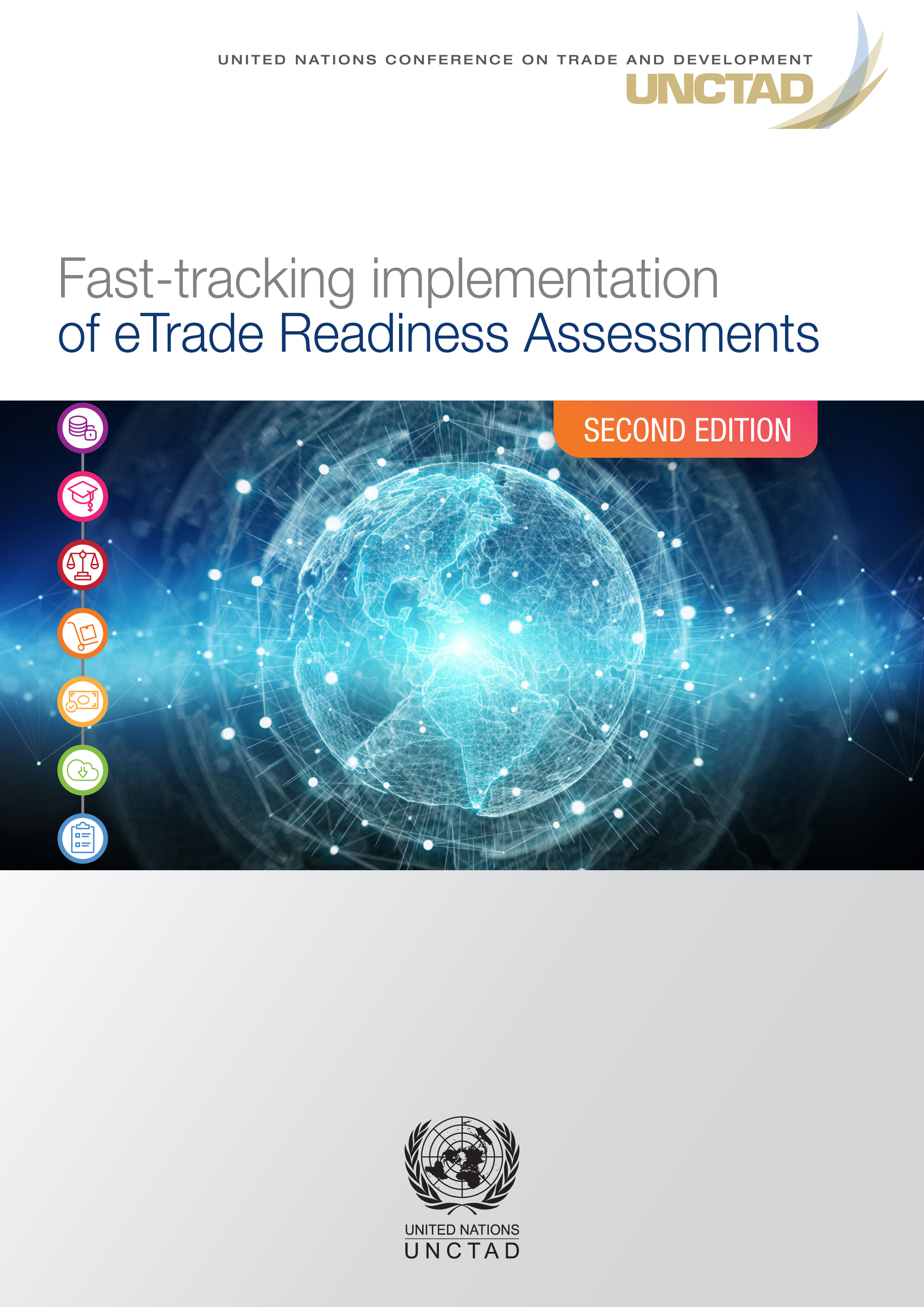Lessons learned, conclusions and recommendations

- Author: United Nations Conference on Trade and Development
- Main Title: Fast-tracking Implementation of eTrade Readiness Assessments: Second Edition , pp 45-46
- Publication Date: August 2022
- DOI: https://doi.org/10.18356/9789210015523c009
- Language: English
E-commerce is still not sufficiently prioritized in the national development agenda despite the wake-up call of the COviD-19 pandemic. Weak institutional cooperation arrangements often remain a prominent challenge to keep momentum for bolder eT Ready implementation impact. Some of the challenges reported in the first IR are reconfirmed in this edition. Against a background of a general improvement in the data collection process led by some countries, it has not always been easy to receive inputs requested by the Focal Point from key stakeholders in line ministries and regulatory agencies. Inter-agency cooperation is not always smooth, and understandably, this is often worsened by staff-turnover and changes at the political level. Similar challenges arise in building connections with the private sector and civil society. But the main challenge to implementation often resides in weak institutional arrangements put in place to drive the process. In some cases, countries report that responsibilities for certain actions are not clearly communicated, nor assigned, which makes the integration of the recommended actions into priorities of executing bodies challenging. In other cases, e-commerce is not sufficiently prioritized in the national development agenda; this leaves space for leadership conflicts or unclear leadership attributions on how to drive the e-commerce sector development agenda.
-
From This Site
/content/books/9789210015523c009dcterms_title,dcterms_subject,pub_keyword-contentType:Journal -contentType:Contributor -contentType:Concept -contentType:Institution105



